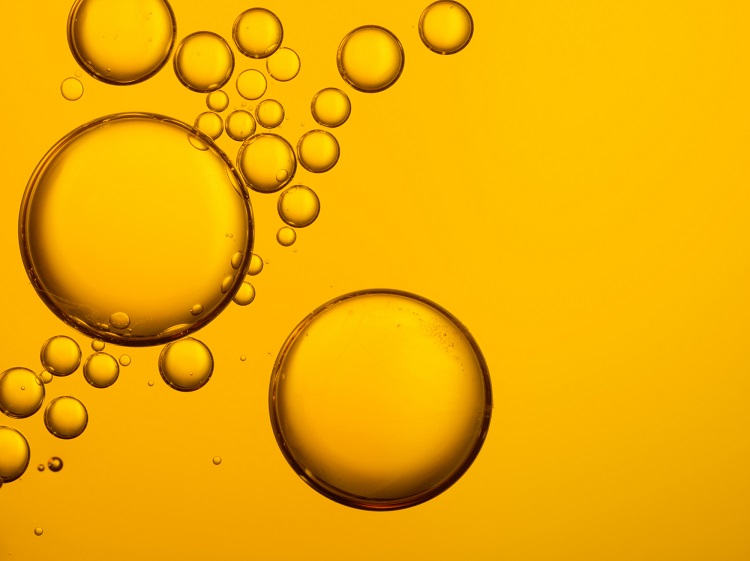
Five European startups use food tech to reinvent fats (19459000)
Food tech startups are putting fats on the radar. From palm oil alternatives to encapsulated fats and cultured oils, they’re all about fats.
Global supply chains of traditional fats such as Palm oilAs cocoa butter and other food products continue to come under scrutiny for their environmental and human impact, more European startups are turning to the world of food technology to create next-generation alternatives.
Here are five things you need to know:
AIO
AIO is an Estonian brand that produces edible oils and fats from the agricultural and woodworking industries.
The team uses precision and natural fermentations to produce microorganisms that can be used to produce antioxidants, pigments and fatty acids. The company says they are used to produce microbial oil rich in omega-3 fats and have a lower environmental impact than palm oils.
The startup already has three products. A red oil that can replace conventional vegetable, seed and fish oils and is suitable for cosmetics and household chemicals. The encapsulated oil is a vegan alternative to soy and palm oils. It can also be used for animal-free products and meats. The startup also claims a “buttery” fat that can replace coconut, animal fats and shortening.
The company is currently working with food producers to test their products and plans to begin industrial-scale production in 2026.
Cubiq Foods
Cubiq Foods of Barcelona uses microencapsulation and cell cultures, as well as new oil/water formulations to produce healthier alternatives in the food industry. This multi-pronged strategy is the first of its kind for industrial-scale applications of alternative fats.
Go!Drop is a new fat substitute that offers, according to the company, "improved juice, full flavor and fewer calories. It also contains less saturated fat and 20 % of oil."
The Spanish startup signed an agreement last year with US ingredients supplier Cargill Foods to work together on product development and go-to-market strategies. This was aimed at accelerating the commercialization and growth of the company's portfolio of fats and oils.
Andres Montfeltro, Cargill’s CEO, said: “The signing of these joint development and commercial agreements marks the next step in our partnership. Our breakthrough technologies are now ready for scale-up, application development and commercialization. Cargill has the unique ability to help us.”
Cultimate
Cultimate, a Berlin-based startup, closed a €2.3 million seed funding round earlier this year to scale up production processes for its premium cultivated fat ingredient.
The biotech startup founded in 2022 has created cultured pork and beef fat. They believe the ingredient is a “game changer” because it gives plant-based foods “authentic meaty texture and taste.” The company claims their fat is the only one on the market. It uses a “3D culture technology” that mimics animal fat tissue and reduces production costs.
Science is key to solving many of the problems caused by the food industry. We can provide consumers with the meat flavors they crave, while reducing unethical factory farming and combating climate change by reducing CO2 emissions.
Hoxton Farms
Hoxton Farms was founded in London by Ed Steele, Max Jamilly, and their classmates, Max Jamilly, as a collaborative effort. The first launch was in 2020. The pair expanded. They cultured fat using stem cells from pigs and cows. They then fermented it with a blend of plant-based nutrients to produce a product they call “ Looks, tastes and cooks like the real dealBut with many things. better ethics.
Steele said: “Our process combines computer modelling with synthetic biology to produce animal fat using stem cells. It’s a cost-effective, sustainable and scalable ingredient.” We then sell the cultured animal oil as a B2B ingredient to food producers.
The team launched a 14,000-square-foot pilot facility in London last September, which included cell culture labs and a kitchen for food research. The site also has a workshop that will manufacture bioreactors designed to optimally grow fat cells at a much lower cost than standard bioreactors. The site is expected to produce 10 tons of fat per year, according to the startup.
Melt & Marble
Melt & Marble is a Swedish startup that believes fats are contributing to the taste gap in plant-based foods. The fats used today, like coconut oil, don’t have the same taste properties as meats, according to Anastasia Krivoruchko. FoodNavigatorLast year. You don't have the same flavor or juiciness.
Precision fermentation is the company’s answer to producing fats with fatty acid composition and saturation levels similar to those found in animal fats and dairy fats. The team uses synthetic biology and metabolic engineering to create yeast strains that naturally convert sugars into these special fats. They then add carefully chosen enzymes to determine the properties and structure of the fat.
The team says that because the product is "just fat," unlike fats that are cultured, encapsulated or have a special structure, it can be used to replace existing vegetable oils, such as coconut butter, cocoa butter and shea butter.
The team moved to new offices in Gothenburg this year to prepare for a production increase. They plan to expand the bioreactor's capacity in the coming months to several tens of cubic meters, which will allow for hundreds of kilograms of production per cycle. The US is expected to launch in 2025.
